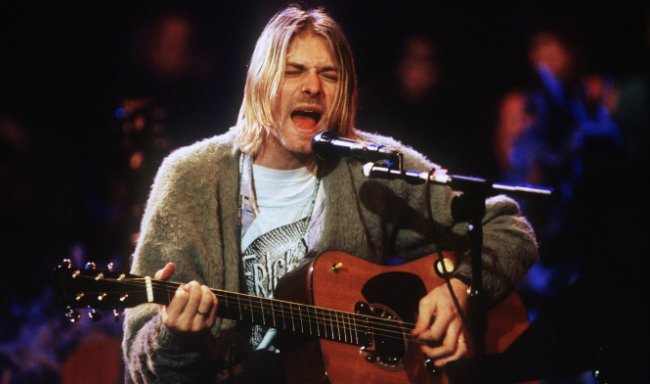
About a month ago, a newly unearthed interview with Nirvana’s Kurt Cobain and Krist Novoselic was shared, and it offered fascinating insight to what was going through their heads in 1989, when they had yet to release their debut album, Bleach. Now some more previously unheard audio, this time from a 1991 conversation with Cobain, has been released, and in it, Cobain offers his thoughts about white rappers.
[protected-iframe id=”8c34afe28781138c5c76ff2d8b513939-60970621-76566046″ info=”https://bandcamp.com/EmbeddedPlayer/track=278248133/size=large/bgcol=ffffff/linkcol=0687f5/tracklist=false/artwork=small/transparent=true/” ]
Roberto Lorusso, who was then a student host at Western University’s campus radio station in London, Ontario, spoke with Cobain before a show at Toronto’s Opera House on September 20, 1991, just four days before the release of the legendary Nevermind album. During their conversation, Lorusso said, “I read you’re a big fan of rap but dislike white rap groups, and this is a quote: ‘The white man has ripped off the black man for long enough.'” He then asked Cobain for his thoughts on Consolidated — an activist music group from the ’90s, consisting of white members, that had hip-hop influences in their sound — and Cobain responded:
“Oh, I don’t know. Was I drunk at that time? I’m a fan of rap music, but most of it is so misogynist that I can’t even deal with it. I’m really not that much of a fan, I totally respect and love it because it’s one of the only original forms of music that’s been introduced, but the white man doing rap is just like watching a white man dance. We can’t dance, we can’t rap.”
Lorusso wrote in the description of his audio upload that he could sense Cobain was struggling with success, saying, “As we spoke, I got a vague sense that he wasn’t really enjoying their success. I couldn’t understand it. I was so enamored with and envious of his talent and success I just couldn’t understand how he could have been so indifferent to it. A few years later it became very clear why.”
Listen to the full 9-minute interview above.






